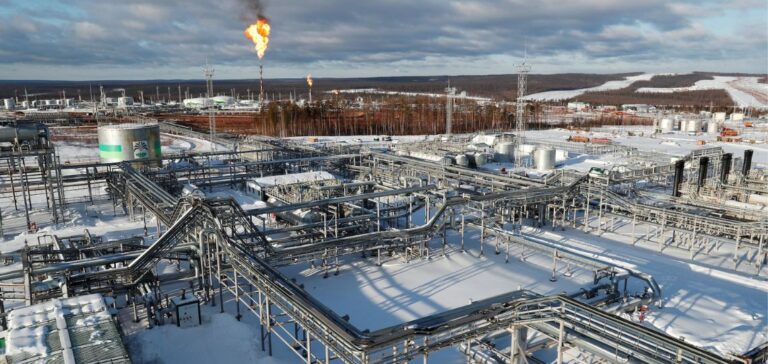India and China are the main buyers of Russian oil so far this month, with the majority of Russian Urals oil cargoes being loaded in the first half of April bound for their ports.
Debates between proponents and opponents of price cap to force Russia
Traders and Reuters calculations reveal that the prices paid by these countries are above the Western price cap of $60 per barrel, which has boosted the Kremlin’s revenues. The Western price cap is imposed to limit funds for Russia ‘s military operations in Ukraine. But some European Union countries, such as Poland, are pushing to lower the cap in order to increase pressure on Moscow.
While supporters of the cap argue that it reduces Russia’s revenues, opponents say it is too low to force Russia to back down on its activities in Ukraine. However, the threat of sanctions has not deterred India and China from buying oil above the cap, and they have not agreed to abide by the price limit.
Average discounts for Urals were $13 per barrel for dated Brent on a DES (delivered on board) basis at Indian ports and $9 for ICE Brent at Chinese ports, while shipping costs were $10.5 and $14 per barrel, respectively, for shipments from Baltic ports to India and China.
Impact of OPEC+ production cuts on Urals and other grades
Despite the Western price cap, the daily grade price exceeded the cap earlier in April due to lower freight rates and lower discounts for Urals compared to global benchmarks. The price of Urals on a free-on-board basis in Baltic ports has been slightly above $60 a barrel so far in April, according to Reuters calculations.
Shipping costs have dropped significantly in recent weeks as Russian port ice conditions have improved and more tankers have become available, with freight rates for Urals cargoes loaded at Baltic ports for delivery to India dropping from $8-8.1 million to $7.5-7.6 million two weeks ago.
The cost of shipping by tanker from Baltic ports to China was $10 million, compared to nearly $11 million a few weeks ago. Lower freight costs suggest that Russian oil suppliers have secured enough ships, even for long distances. Meanwhile, the production cuts announced by the OPEC+ group of oil producers in early April also boosted values of various grades around the world, including Urals.






















